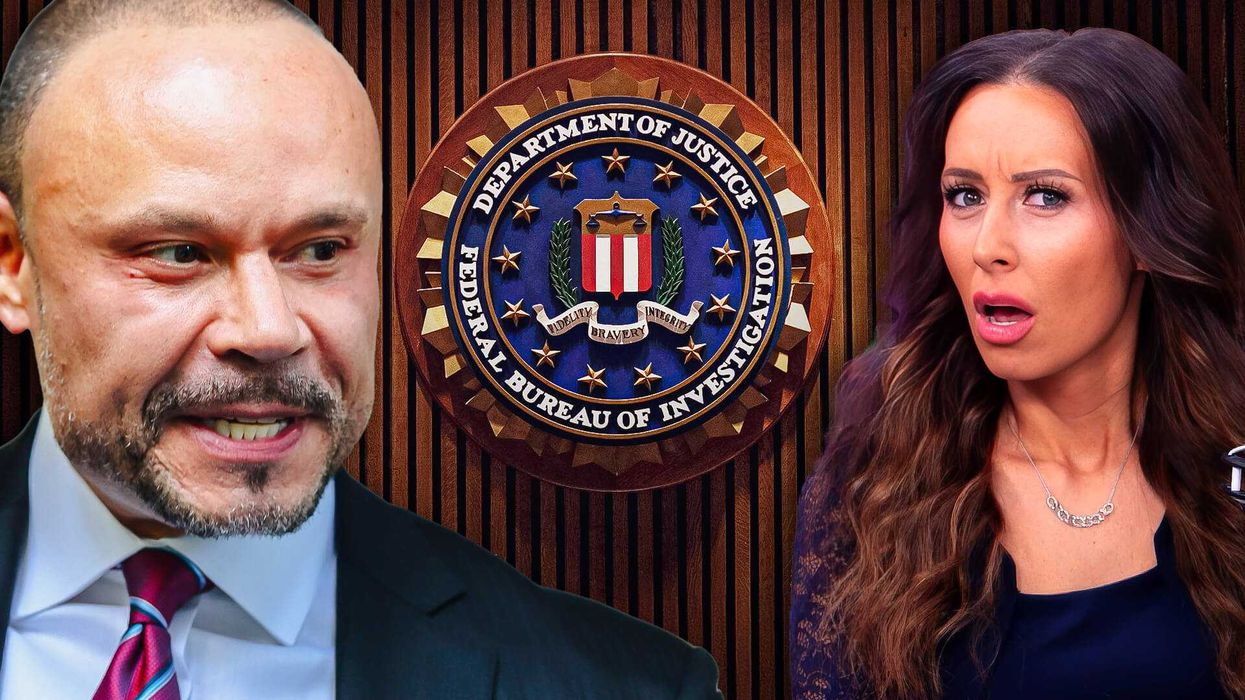 WASHINGTON, DC - JUNE 24: People wait to enter the U.S. Supreme Court building June 24, 2013 in Washington DC. Credit: Getty Images
WASHINGTON, DC - JUNE 24: People wait to enter the U.S. Supreme Court building June 24, 2013 in Washington DC. Credit: Getty Images
WASHINGTON (TheBlaze/AP) -- The Supreme Court ruled Tuesday that a key provision of the landmark Voting Rights Act cannot be enforced unless Congress comes up with a new way of determining which states and localities require federal monitoring of elections.
The justices said in 5-4 vote that the law Congress most recently renewed in 2006 relies on 40-year-old data that does not reflect racial progress and changes in U.S. society.
The court did not technically strike down the advance approval requirement of the law that has been used, mainly in the South, to open up polling places to minority voters in the nearly half century since it was first enacted in 1965. But the justices did say lawmakers must update the formula for determining which parts of the country must seek Washington's approval, in advance, for election changes.
In short, the provision is unenforceable as it stands, but could be updated.
Here's how the New York Times puts it: "The Supreme Court struck down a central portion of the Voting Rights Act on Tuesday, effectively ending the practice in which some states with a history of racial discrimination must receive clearance from the federal government before changing voting laws."
Chief Justice John Roberts said for the conservative majority that Congress "may draft another formula based on current conditions."
The decision in the case, Shelby County v. Holder, comes five months after President Barack Obama, the nation's first black chief executive, started his second term in the White House.
You can read the full ruling below:
Supreme Court: Shelby County v. Holder ruling
In reaction to the decision, President Obama released a "disappointed" rebuttal, calling it a "setback":
I am deeply disappointed with the Supreme Court’s decision today. For nearly 50 years, the Voting Rights Act – enacted and repeatedly renewed by wide bipartisan majorities in Congress – has helped secure the right to vote for millions of Americans. Today’s decision invalidating one of its core provisions upsets decades of well-established practices that help make sure voting is fair, especially in places where voting discrimination has been historically prevalent.
As a nation, we’ve made a great deal of progress towards guaranteeing every American the right to vote. But, as the Supreme Court recognized, voting discrimination still exists. And while today’s decision is a setback, it doesn’t represent the end of our efforts to end voting discrimination. I am calling on Congress to pass legislation to ensure every American has equal access to the polls. My Administration will continue to do everything in its power to ensure a fair and equal voting process.
The court warned of problems with the voting rights law in a similar case heard in 2009. The justices averted a major constitutional ruling at that time, but Congress did nothing to address the issues the court raised. The law's opponents, sensing its vulnerability, filed several new lawsuits.
The latest decision came in a challenge to the advance approval, or preclearance, requirement, which was brought by Shelby County, Ala., a Birmingham suburb.
The lawsuit acknowledged that the measure's strong medicine was appropriate and necessary to counteract decades of state-sponsored discrimination in voting, despite the Fifteenth Amendment's guarantee of the vote for black Americans.
But it asked whether there was any end in sight for a provision that intrudes on states' rights to conduct elections, an issue the court's conservative justices also explored at the argument in February. It was considered an emergency response when first enacted in 1965.
The county noted that the 25-year extension approved in 2006 would keep some places under Washington's oversight until 2031 and seemed not to account for changes that include the elimination of racial disparity in voter registration and turnout or the existence of allegations of race-based discrimination in voting in areas of the country that are not subject to the provision.
The Obama administration and civil rights groups said there is a continuing need for it and pointed to the Justice Department's efforts to block voter ID laws in South Carolina and Texas last year, as well as a redistricting plan in Texas that a federal court found discriminated against the state's large and growing Hispanic population.
Advance approval was put into the law to give federal officials a potent tool to defeat persistent efforts to keep blacks from voting.
The provision was considered successful because it shifted the legal burden and required governments that were covered to demonstrate that their proposed changes would not discriminate. Congress periodically has renewed it over the years. The most recent extension was overwhelmingly approved by a Republican-led Congress and signed by President George W. Bush.
The requirement currently applies to the states of Alabama, Alaska, Arizona, Georgia, Louisiana, Mississippi, South Carolina, Texas and Virginia. It also covers certain counties in California, Florida, New York, North Carolina and South Dakota, and some local jurisdictions in Michigan. Coverage has been triggered by past discrimination not only against blacks, but also against American Indians, Asian-Americans, Alaska Natives and Hispanics.
Towns in New Hampshire that had been covered by the law were freed from the advance approval requirement in March. Supporters of the provision pointed to the ability to bail out of the prior approval provision to argue that the law was flexible enough to accommodate change and that the court should leave the Voting Rights Act intact.
On Monday, the Justice Department announced an agreement that would allow Hanover County, Va., to bail out.
"Absolutely historic," the revered SCOTUS blog said during a live stream covering the court's rulings on Tuesday.
"Probably spells the death knell for that statue," the commentator said.
This is a breaking story. Updates will be added.
--
Related Contributions:

 WASHINGTON, DC - JUNE 24: People wait to enter the U.S. Supreme Court building June 24, 2013 in Washington DC. Credit: Getty Images
WASHINGTON, DC - JUNE 24: People wait to enter the U.S. Supreme Court building June 24, 2013 in Washington DC. Credit: Getty Images






